#doctors in pennsylvania
Explore tagged Tumblr posts
Text
#peptide therapy#regen pain management#pa pain specialists#therapy doctors#pain specialist allentown pa#doctors in pennsylvania#pain management physician#pain and spine specialists of pa#spinal specialists#doctors for muscle pain#pa pain specialists bethlehem pa
0 notes
Text
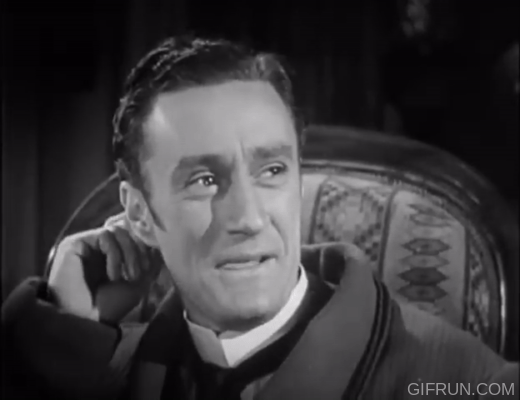
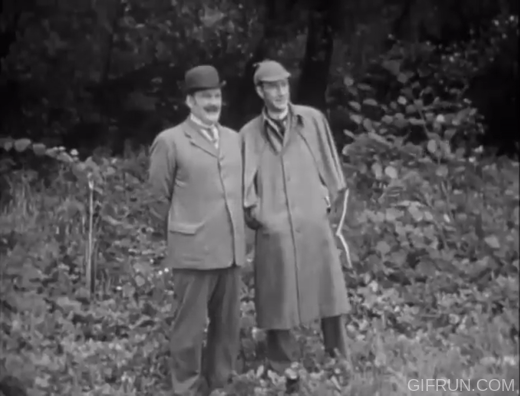
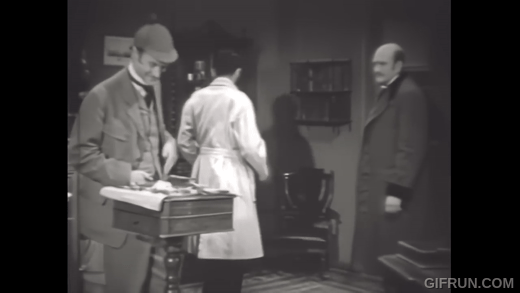

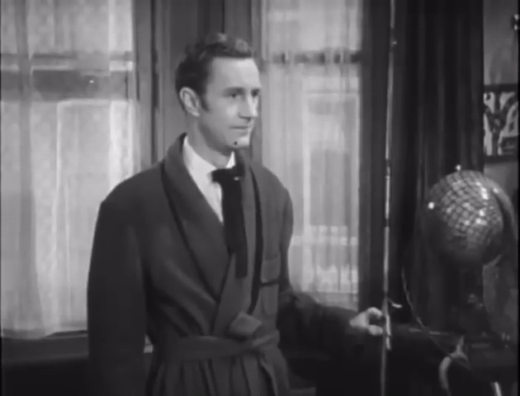
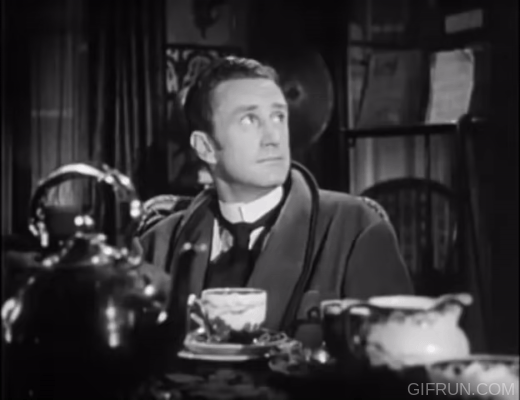

Holmes's habit of touching his ear when he laughs
#sherlock holmes#1954 sherlock holmes#ronald howard#221b baker street#doctor watson#holmes and watson#ronald howard holmes#the case of the imposter mystery#the mother hubbard case#the red headed league#the case of the careless suffragette#the case of the baker street nursemaids#the case of the diamond tooth#the case of the pennsylvania gun
164 notes
·
View notes
Text
“I’m from Pennsylvania” do you know him?

51 notes
·
View notes
Text
Are you struggling with a problem of overeating, cravings, or slow metabolism? Don't think so much! Tirzepatide Weight Loss Treatment NJ is at your rescue. This medication makes the weight loss process both shorter and more enduring. The substance extends the feelings of fullness by simultaneously decreasing uncontrolled eating habits.
#Diet Doctor Clinic#Weight Management Clinic#Diet Shots For Weight Loss#Weight Loss Shots Near Me#Medical Weight Loss Philly#New Jersey Diet Doctor#Low Testosterone Therapy#Testosterone Replacement Therapy Pennsylvania#South Jersey Testosterone Therapy Dr#Phentermine Doctors#Semaglutide Weight Loss Treatment#Glp1 Weight Loss Doctor#Glp1 Weight Loss Doctor in Philadelphia#Wegovy Diet Shot South Jersey
0 notes
Text
The Ultimate Guide to Finding the Best Weight Loss Doctors Near You
Looking for the best weight loss doctors near you? Discover how to find experienced, physician-supervised weight loss specialists for safe and effective weight management. Losing weight is a personal journey, but finding the right weight-loss doctor can make all the difference. If you’ve tried diets, exercise, and other weight loss programs without success, a physician-supervised weight loss…
#best weight loss clinic#best weight loss doctors#doctor for weight loss#Dr. Adarsh Gupta#find a weight loss doctor#Getting started with weightloss#medical weight loss#physician-supervised weight loss#prescription weight loss program#weight loss doctor in collegeville#weight loss doctor in NJ#weight loss doctor in pennsylvania#weight loss doctor in philadelphia#weight loss doctors#weight loss specialists#weight loss treatment
0 notes
Video
WARNING PERSON ON FIRE NEW PLANE CRASH. Medical Plane. Doctors. @Philad... NEW PLANE CRASH. Medical Plane. Doctors. Multiple Houses on FIRE. Philadelphia #medevac #planecrash #philadelphia #Pennsylvania #explosion #airplane #airplanecrash #news #headlines #Breakingnews
#youtube#NEW PLANE CRASH. Medical Plane. Doctors. Multiple Houses on FIRE. Philadelphia medevac planecrash philadelphia Pennsylvania explosion airpl
0 notes
Text
Medical Marijuana Doctor | Compassionate Care Consultants | Pittsburgh, PA
Address: US Steel Tower, 600 Grant St floor 49, Pittsburgh, PA 15219
Phone: 484-320-6550
Website: https://compcaremd.com/locations/medical-marijuana-pittsburgh-pa/
Compassionate Care Consultants is a medical marijuana doctor in Pittsburgh, Pennsylvania. We proudly serve MMJ patients from Pittsburgh and beyond. Don’t hesitate to contact us with questions on how to obtain MMJ card.
#Medical Marijuana Doctor#MMJ Card#Medical Marijuana Certification#Chronic Pain Relief#Anxiety Treatment#Telemedicine MMJ Consultations#Pennsylvania Medical Marijuana#Medical Cannabis Evaluations
1 note
·
View note
Text

The Significance of Obtaining a Pennsylvania Medical Marijuana Card
Compassionate Certification Centers can help you find your way to improved well-being. Our knowledgeable staff helps you understand the importance of obtaining a Pennsylvania Medical Marijuana Card so that you can access medicinal relief and a comprehensive approach to wellness. Improve your quality of life with individualized treatment and approved cannabis products.
#pennsylvania medical marijuana card#mmj card renewal#medical marijuana certification#mmjcertification#pa mmj doctors#compassionate certification centers
0 notes
Photo
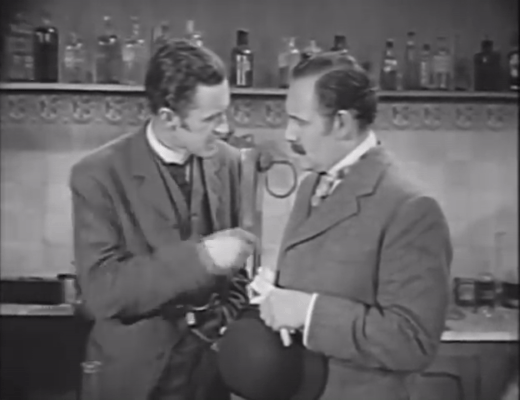
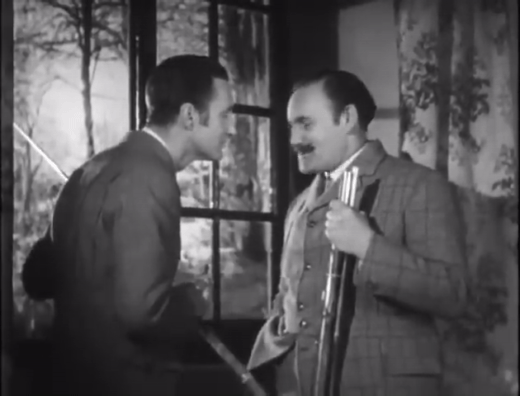
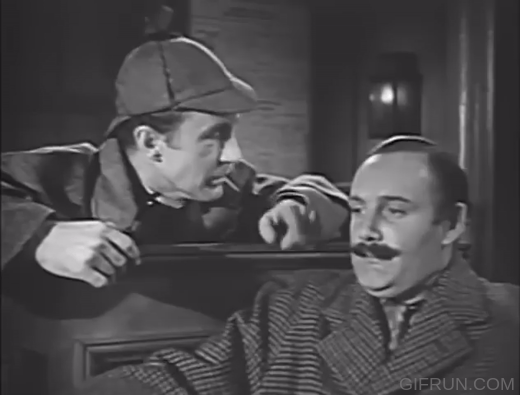
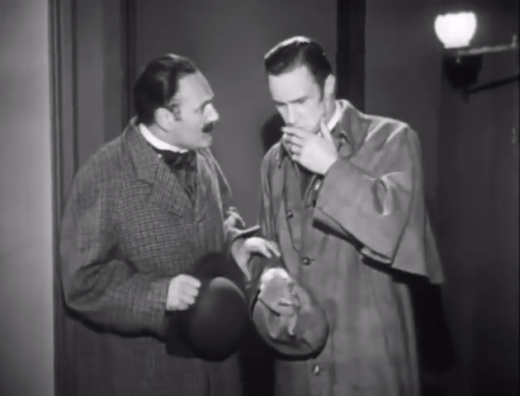


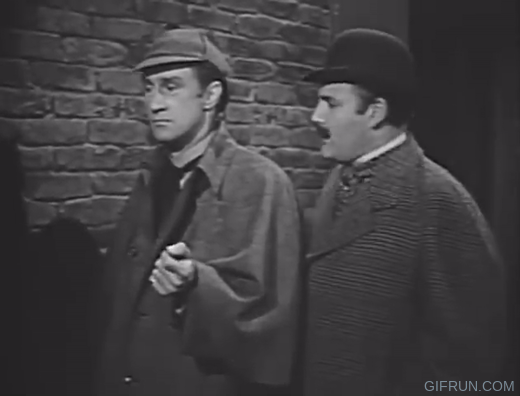
Holmes pokes/ touches Watson with one finger from the first day they met and Watson quickly picks up the habit himself, and even starts poking Lestrade too
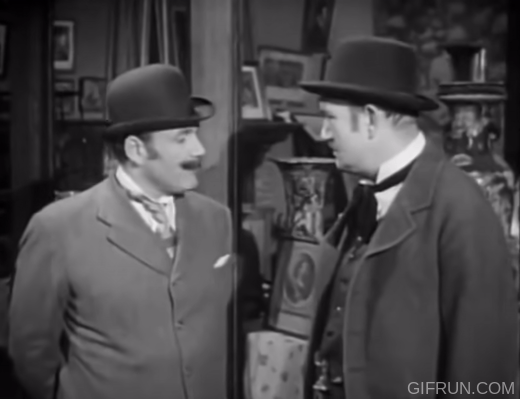
#1954 Sherlock Holmes#ronald howard holmes#ronald howard#doctor watson#sherlock holmes#holmes and watson#inspector lestrade#the case of the Cunningham Heritage#the case of the belligerent ghost#The Case of the Singing Violin#the case of the Vanished Detective#the case of the Pennsylvania Gun#the case of the jolly hangman#the case of the night train riddle
256 notes
·
View notes
Text
Opting for Premier Gutter Cleaning Services in Pennsylvania
Gutters serve a pivotal role in shielding your residence from water-related damages by diverting rainwater away from the foundation. Overlooking gutter maintenance can result in blockages, leaks, and potential structural complications. To secure your property, it becomes imperative to engage best Gutter Cleaning Company.

#Premier Gutter Cleaning#Gutter Cleaning Services#Gutter Cleaning in Pennsylvania#Gutter Doctor Solution
0 notes
Text
Peptide Therapy for Weight Loss
Ever find yourself asking, “Why can’t I lose this weight?” You’ve been hitting the gym and eating your greens, and still, those pounds cling on for dear life. It’s a familiar story. The truth is, while diet and exercise are fundamental to weight loss, sometimes they just don’t cut it alone. Maybe it’s your metabolism, your hormones, or your genes. So, where do you turn when the basics aren’t enough? Let’s talk about a less conventional solution to weight loss: peptide therapy.
0 notes
Text
The Science of Habit Formation: How to Stick to Healthy Routines
Learn the science behind habit formation and how to stick to healthy routines for sustainable weight loss and overall wellness. Discover expert-backed strategies, wellness supplements, and personalized coaching to build lasting habits. Have you ever tried to eat healthier, exercise regularly, or drink more water—only to fall back into old patterns? You’re not alone. Building sustainable healthy…
#fitness habits#Getting started with weightloss#habit formation#healthy routines#how to build habits#nutrition habits#science of habits#Success with Weight Loss#sustainable health#Valley Forge Weight Management Center#weight loss doctor in pennsylvania#weight loss habits#wellness habits
0 notes
Text
Pennsylvania Hospital Doctors, Appointment, Address, Emergency Department, Medical Specialists
New Post has been published on https://www.informationhospital.com/pennsylvania-hospital-doctors-appointment-address-emergency-department-medical-specialists/
Pennsylvania Hospital Doctors, Appointment, Address, Emergency Department, Medical Specialists

Pennsylvania Hospital Doctors
Founded in 1751 by Dr. Thomas Bond and Benjamin Franklin, Pennsylvania Hospital is renowned not only as the first hospital in the United States but also as an institution that has consistently set standards in the realm of healthcare. Throughout its storied history, it’s the exceptional cadre of doctors that has been at the forefront of the hospital’s many achievements.
Pennsylvania Hospital doctors represent a diverse tapestry of specialties and backgrounds. From pioneering surgeons who have advanced operative techniques to pediatricians giving children a healthy start in life, the range of expertise is both vast and deep. This isn’t a coincidence. The hospital’s rigorous selection process ensures that only the best and the brightest are afforded the privilege to serve under its revered banner.
The legacy of these doctors is built upon a commitment to innovation. Over the decades, numerous groundbreaking procedures and treatments have been developed within the hospital’s walls. These innovations are testament to the doctors’ relentless pursuit of medical excellence, always aiming to raise the bar of what’s possible in patient care. Their dedication to research, often in collaboration with world-class institutions, has further solidified Pennsylvania Hospital’s reputation as a beacon of medical advancement.
However, what truly sets Pennsylvania Hospital doctors apart is their holistic approach to medicine. Recognizing that healing is as much an art as it is a science, they emphasize patient-centric care. This means understanding the individual needs of each patient, listening to their concerns, and crafting a treatment plan tailored to their unique circumstances. It’s a philosophy rooted in compassion, respect, and the innate desire to heal.
Training is another hallmark of the Pennsylvania Hospital experience. Many of the hospital’s doctors are also educators, imparting their knowledge and expertise to the next generation of medical professionals. This emphasis on education ensures a continuous cycle of knowledge transfer, with younger doctors benefiting from the wisdom of their seasoned counterparts. This symbiotic relationship fosters an environment of continuous learning and improvement.
Furthermore, the sense of community among the doctors is palpable. They operate as a cohesive unit, supporting each other in their respective specialties. This collaborative approach, underpinned by mutual respect, facilitates the multidisciplinary treatment strategies that the hospital is known for. Whether it’s a complex surgical procedure requiring the skills of various specialists or a challenging diagnosis that demands a collective brainstorm, Pennsylvania Hospital doctors exemplify teamwork in every sense of the word.
It’s also worth noting the international recognition many of these doctors have garnered. Awards, citations, and invitations to speak at global conferences underscore their contributions to the broader medical community. They are ambassadors of Pennsylvania Hospital’s legacy, spreading its ethos of excellence far and wide.
In summary, the doctors of Pennsylvania Hospital are not just caregivers; they are visionaries, educators, innovators, and above all, healers. Their unwavering commitment to their patients, the institution, and the broader field of medicine is a testament to their passion and dedication. As Pennsylvania Hospital continues to write new chapters in its illustrious history, its doctors remain the stalwarts, upholding and enhancing a legacy that spans centuries.
youtube
Pennsylvania Hospital Appointment
Established in 1751 by Benjamin Franklin and Dr. Thomas Bond, Pennsylvania Hospital stands as America’s first hospital, a beacon of medical advancement and a symbol of unwavering commitment to patient care. Its storied walls have seen centuries of medical evolution, always embracing innovation while retaining the core essence of its historic roots. So, when one embarks on the journey to secure an appointment at this revered institution, they aren’t merely booking a medical consultation—they’re becoming part of a legacy.
The appointment process, as one might expect from such a distinguished institution, mirrors the hospital’s overall ethos: patient-centered, efficient, and holistic. From the first point of contact, be it via a phone call, online platform, or a personal visit, the experience is designed to be seamless and reassuring. The hospital understands that the modern healthcare landscape, with its myriad of specializations and treatment modalities, can be overwhelming. Hence, their appointment systems are streamlined to guide patients through every step, ensuring they find the right specialist for their unique needs.
Specialized care is one of Pennsylvania Hospital’s hallmarks. Boasting a roster of internationally recognized physicians and surgeons, the institution covers a vast array of medical specializations. From neurology to orthopedics, and from cardiology to obstetrics, the breadth of expertise available ensures that patients receive the most advanced and appropriate care for their conditions. The task of connecting patients to these experts has been meticulously crafted to ensure clarity and convenience. Detailed online profiles of doctors, transparent scheduling availability, and a dedicated helpline for appointment-related queries are just a few facets of their comprehensive approach.
However, what truly sets the appointment process at Pennsylvania Hospital apart is the human touch. Behind the digital platforms and automated systems are teams of dedicated healthcare professionals whose primary goal is to facilitate a smooth, stress-free experience. These teams understand that each patient’s journey is unique, with distinct concerns, questions, and apprehensions. By providing personalized assistance, they aim to bridge the gap between clinical efficiency and compassionate care.
Moreover, the hospital’s commitment doesn’t end once an appointment is secured. Comprehensive pre-appointment guidance, including necessary preparatory steps, documentation requirements, and facility navigation tips, ensures that patients and their families are well-prepared. This foresight not only minimizes potential day-of-appointment hassles but also aligns with the hospital’s broader objective: to ensure that the focus remains squarely on health and recovery.
In conclusion, securing an appointment at Pennsylvania Hospital is more than a mere calendar booking. It’s an invitation to experience healthcare the way it was always meant to be—rooted in a tradition of excellence, powered by modern innovation, and delivered with genuine compassion. As America’s first hospital continues its journey into the future, its appointment system stands as a testament to its unwavering dedication to the patients it serves.
Pennsylvania Hospital Address
Nestled within the vibrant streets of Philadelphia, the Pennsylvania Hospital isn’t merely an address on a map; it’s an emblem of medical history, an institution of monumental significance, and an enduring symbol of Philadelphia’s enduring commitment to healthcare. When mentioning its address, one cannot help but reflect upon its revered standing in the medical community and its distinction as America’s very first hospital.
Founded in 1751 by Benjamin Franklin and Dr. Thomas Bond, the hospital’s location in Philadelphia was no accident. The city was, during that time, a bustling hub of innovation and progressive thought. These ideals extended into healthcare, a domain where the need for organized, professional medical care was becoming increasingly evident. Set against this backdrop, Pennsylvania Hospital became a beacon, ushering in a new era of medical advancements and patient care standards.
Locating Pennsylvania Hospital is more than just a matter of following GPS coordinates or seeking out a building. It is about traversing the streets that have witnessed countless medical breakthroughs and groundbreaking procedures. Every brick and corridor of the hospital resonates with stories of healing, challenges, and the relentless pursuit of medical excellence. The address serves as a gateway to this rich tapestry of history, drawing visitors, patients, and professionals alike.
While its historical roots run deep, Pennsylvania Hospital is not trapped in the past. The hospital’s address is synonymous with cutting-edge medical care, where tradition meets innovation. Its geographical positioning in Philadelphia also places it at a strategic intersection of research, academics, and practical healthcare delivery. Numerous esteemed medical professionals have walked its halls, contributing to the hospital’s legacy and ensuring its reputation remains sterling.
For patients, the journey to this address often represents hope. They come seeking world-class care and expertise, which the hospital has consistently delivered over its long-standing tenure. The hospital’s commitment to excellence ensures that patients do not just receive treatment but experience holistic care in an environment steeped in history but equipped with modern facilities.
For medical professionals, Pennsylvania Hospital represents a pinnacle in their field. Whether they are starting their careers or are seasoned practitioners, being associated with such an esteemed institution is a matter of pride. Collaborative opportunities, advanced research facilities, and a chance to work alongside some of the best in the field make the hospital’s address a sought-after destination.
For the casual visitor or history enthusiast, the hospital offers a unique blend of historical architecture and modern medical advancements. Guided tours often elucidate the hospital’s storied past, bringing to life tales of its founders, its challenges during wartime, and its evolution over the years.
In conclusion, while the address of Pennsylvania Hospital might seem like a simple geographical locator, it encapsulates a realm where history, medicine, and innovation converge. This institution is a testament to Philadelphia’s spirit and the ever-evolving journey of medical care in America.
Pennsylvania Hospital Emergency Department
Nestled within the historic fabric of Philadelphia lies the Pennsylvania Hospital Emergency Department, an institution of medical excellence with deep roots tracing back to the origins of American medicine. As a part of America’s first hospital, this department embodies a rich history while simultaneously embracing the latest in medical advancements, ensuring that residents and visitors to the city have access to top-tier emergency care.
Founded in 1751 by Benjamin Franklin and Dr. Thomas Bond, Pennsylvania Hospital has a storied legacy that has evolved and adapted over the centuries, continually setting new standards in patient care. The Emergency Department stands as a testament to this commitment, leveraging cutting-edge technology and practices to provide life-saving interventions.
The medical landscape is fraught with unforeseen challenges, from sudden cardiac events to traumatic injuries, and the Pennsylvania Hospital Emergency Department has consistently demonstrated an unmatched ability to rise to these challenges. The department is backed by a team of highly-trained medical professionals who have dedicated their lives to the service of others. Their rigorous training, combined with their innate compassion, equips them to handle the myriad of medical emergencies that come their way. Every staff member, from the attending physicians to the nurses and support staff, plays an integral role in ensuring a seamless patient experience.
Furthermore, the department’s infrastructure is designed to accommodate the unique demands of emergency medicine. Multiple trauma rooms, state-of-the-art imaging facilities, and rapid diagnostic tools ensure that when seconds count, the necessary resources are at hand. This emphasis on swift and accurate care is further enhanced by the department’s robust coordination with other specialties within the hospital, ensuring comprehensive care tailored to each patient’s needs.
Education and community outreach are also fundamental to the department’s mission. Regular training sessions, seminars, and workshops are organized not only for the staff but also for the community, ensuring that the broader public is equipped with basic life-saving skills. This commitment to community wellness underscores the hospital’s belief that a well-informed public plays a crucial role in the overall health of the city.
In conclusion, the Pennsylvania Hospital Emergency Department stands not just as a facility for medical intervention but as an embodiment of a promise — a promise of unwavering dedication, expertise, and compassion. The weight of its historic legacy combined with its forward-thinking approach has positioned it as an indispensable asset to Philadelphia, reassuring its residents and visitors that in times of crisis, they are in the most capable hands.
Pennsylvania Hospital Medical Specialists
Founded in 1751 by Benjamin Franklin and Dr. Thomas Bond, Pennsylvania Hospital, nestled in the historic city of Philadelphia, holds the distinction of being America’s first hospital. Its legacy, spanning over two and a half centuries, is one of unwavering dedication to patient care, innovative research, and medical education. Central to its groundbreaking achievements and continued reputation of excellence are its medical specialists. These professionals, hailing from diverse disciplines, have cemented the hospital’s standing as a premier medical institution, known not just in the United States, but across the world.
Pennsylvania Hospital’s team of medical specialists is a blend of seasoned professionals and dynamic young experts, all united by a common goal: delivering top-notch, patient-centric care. The specialists are not just practitioners; they are thought leaders, researchers, and educators. Their contributions to medical literature, pioneering research, and mentorship of the next generation of medical professionals ensure that the hospital remains at the forefront of medical advancements.
From cardiology to neurology, oncology to orthopedics, each department boasts specialists who have been recognized nationally and internationally for their clinical and research excellence. Their approach is not just about treating diseases or ailments; it’s about holistic patient care. This entails understanding the individual needs of each patient, fostering a compassionate environment, and employing cutting-edge treatments tailored to individual patient profiles.
Moreover, the culture of research and innovation at Pennsylvania Hospital means that these specialists are often at the helm of clinical trials and research projects. Such endeavors have led to breakthrough treatments and therapies, benefiting not just the local community, but patients worldwide. The hospital’s rich history is replete with firsts — from pioneering surgical procedures to innovative treatment methodologies, and its specialists have always been at the center of these milestones.
Collaboration is another hallmark of the medical specialists at Pennsylvania Hospital. Recognizing that modern healthcare often requires a multidisciplinary approach, there’s a strong emphasis on inter-departmental collaboration. Whether it’s a cardiologist working alongside a pulmonologist or an oncologist teaming up with radiologists, this collaborative spirit ensures comprehensive care, drawing from the collective expertise of various specialists.
Beyond their clinical and research roles, these medical specialists also play a pivotal role in shaping the future of medicine through their educational endeavors. Pennsylvania Hospital has been a nurturing ground for countless medical professionals over the years. The specialists, with their vast reservoir of knowledge and experience, impart invaluable lessons to aspiring doctors, ensuring the legacy of excellence is carried forward.
In conclusion, while Pennsylvania Hospital’s storied history and architectural grandeur might draw attention, it’s the medical specialists who are its true pillars. Their unwavering commitment to excellence, innovation, and patient care has not only upheld the hospital’s legacy but also promises a future where medical care continues to break barriers and set new benchmarks.
https://www.informationhospital.com/pennsylvania-hospital-doctors-appointment-address-emergency-department-medical-specialists/
#Pennsylvania Hospital Address#Pennsylvania Hospital Appointment#Pennsylvania Hospital Doctors#Pennsylvania Hospital Emergency Department#Pennsylvania Hospital Medical Specialists
0 notes
Note
they have a point though. you wouldn't need everyone to accommodate you if you just lost weight, but you're too lazy to stick to a healthy diet and exercise. it's that simple. I'd like to see you back up your claims, but you have no proof. you have got to stop lying to yourselves and face the facts
Must I go through this again? Fine. FINE. You guys are working my nerves today. You want to talk about facing the facts? Let's face the fucking facts.
In 2022, the US market cap of the weight loss industry was $75 billion [1, 3]. In 2021, the global market cap of the weight loss industry was estimated at $224.27 billion [2].
In 2020, the market shrunk by about 25%, but rebounded and then some since then [1, 3] By 2030, the global weight loss industry is expected to be valued at $405.4 billion [2]. If diets really worked, this industry would fall overnight.
1. LaRosa, J. March 10, 2022. "U.S. Weight Loss Market Shrinks by 25% in 2020 with Pandemic, but Rebounds in 2021." Market Research Blog. 2. Staff. February 09, 2023. "[Latest] Global Weight Loss and Weight Management Market Size/Share Worth." Facts and Factors Research. 3. LaRosa, J. March 27, 2023. "U.S. Weight Loss Market Partially Recovers from the Pandemic." Market Research Blog.
Over 50 years of research conclusively demonstrates that virtually everyone who intentionally loses weight by manipulating their eating and exercise habits will regain the weight they lost within 3-5 years. And 75% will actually regain more weight than they lost [4].
4. Mann, T., Tomiyama, A.J., Westling, E., Lew, A.M., Samuels, B., Chatman, J. (2007). "Medicare’s Search For Effective Obesity Treatments: Diets Are Not The Answer." The American Psychologist, 62, 220-233. U.S. National Library of Medicine, Apr. 2007.
The annual odds of a fat person attaining a so-called “normal” weight and maintaining that for 5 years is approximately 1 in 1000 [5].
5. Fildes, A., Charlton, J., Rudisill, C., Littlejohns, P., Prevost, A.T., & Gulliford, M.C. (2015). “Probability of an Obese Person Attaining Normal Body Weight: Cohort Study Using Electronic Health Records.” American Journal of Public Health, July 16, 2015: e1–e6.
Doctors became so desperate that they resorted to amputating parts of the digestive tract (bariatric surgery) in the hopes that it might finally result in long-term weight-loss. Except that doesn’t work either. [6] And it turns out it causes death [7], addiction [8], malnutrition [9], and suicide [7].
6. Magro, Daniéla Oliviera, et al. “Long-Term Weight Regain after Gastric Bypass: A 5-Year Prospective Study - Obesity Surgery.” SpringerLink, 8 Apr. 2008. 7. Omalu, Bennet I, et al. “Death Rates and Causes of Death After Bariatric Surgery for Pennsylvania Residents, 1995 to 2004.” Jama Network, 1 Oct. 2007. 8. King, Wendy C., et al. “Prevalence of Alcohol Use Disorders Before and After Bariatric Surgery.” Jama Network, 20 June 2012. 9. Gletsu-Miller, Nana, and Breanne N. Wright. “Mineral Malnutrition Following Bariatric Surgery.” Advances In Nutrition: An International Review Journal, Sept. 2013.
Evidence suggests that repeatedly losing and gaining weight is linked to cardiovascular disease, stroke, diabetes and altered immune function [10].
10. Tomiyama, A Janet, et al. “Long‐term Effects of Dieting: Is Weight Loss Related to Health?” Social and Personality Psychology Compass, 6 July 2017.
Prescribed weight loss is the leading predictor of eating disorders [11].
11. Patton, GC, et al. “Onset of Adolescent Eating Disorders: Population Based Cohort Study over 3 Years.” BMJ (Clinical Research Ed.), 20 Mar. 1999.
The idea that “obesity” is unhealthy and can cause or exacerbate illnesses is a biased misrepresentation of the scientific literature that is informed more by bigotry than credible science [12].
12. Medvedyuk, Stella, et al. “Ideology, Obesity and the Social Determinants of Health: A Critical Analysis of the Obesity and Health Relationship” Taylor & Francis Online, 7 June 2017.
“Obesity” has no proven causative role in the onset of any chronic condition [13, 14] and its appearance may be a protective response to the onset of numerous chronic conditions generated from currently unknown causes [15, 16, 17, 18].
13. Kahn, BB, and JS Flier. “Obesity and Insulin Resistance.” The Journal of Clinical Investigation, Aug. 2000. 14. Cofield, Stacey S, et al. “Use of Causal Language in Observational Studies of Obesity and Nutrition.” Obesity Facts, 3 Dec. 2010. 15. Lavie, Carl J, et al. “Obesity and Cardiovascular Disease: Risk Factor, Paradox, and Impact of Weight Loss.” Journal of the American College of Cardiology, 26 May 2009. 16. Uretsky, Seth, et al. “Obesity Paradox in Patients with Hypertension and Coronary Artery Disease.” The American Journal of Medicine, Oct. 2007. 17. Mullen, John T, et al. “The Obesity Paradox: Body Mass Index and Outcomes in Patients Undergoing Nonbariatric General Surgery.” Annals of Surgery, July 2005. 18. Tseng, Chin-Hsiao. “Obesity Paradox: Differential Effects on Cancer and Noncancer Mortality in Patients with Type 2 Diabetes Mellitus.” Atherosclerosis, Jan. 2013.
Fatness was associated with only 1/3 the associated deaths that previous research estimated and being “overweight” conferred no increased risk at all, and may even be a protective factor against all-causes mortality relative to lower weight categories [19].
19. Flegal, Katherine M. “The Obesity Wars and the Education of a Researcher: A Personal Account.” Progress in Cardiovascular Diseases, 15 June 2021.
Studies have observed that about 30% of so-called “normal weight” people are “unhealthy” whereas about 50% of so-called “overweight” people are “healthy”. Thus, using the BMI as an indicator of health results in the misclassification of some 75 million people in the United States alone [20].
20. Rey-López, JP, et al. “The Prevalence of Metabolically Healthy Obesity: A Systematic Review and Critical Evaluation of the Definitions Used.” Obesity Reviews : An Official Journal of the International Association for the Study of Obesity, 15 Oct. 2014.
While epidemiologists use BMI to calculate national obesity rates (nearly 35% for adults and 18% for kids), the distinctions can be arbitrary. In 1998, the National Institutes of Health lowered the overweight threshold from 27.8 to 25—branding roughly 29 million Americans as fat overnight—to match international guidelines. But critics noted that those guidelines were drafted in part by the International Obesity Task Force, whose two principal funders were companies making weight loss drugs [21].
21. Butler, Kiera. “Why BMI Is a Big Fat Scam.” Mother Jones, 25 Aug. 2014.
Body size is largely determined by genetics [22].
22. Wardle, J. Carnell, C. Haworth, R. Plomin. “Evidence for a strong genetic influence on childhood adiposity despite the force of the obesogenic environment” American Journal of Clinical Nutrition Vol. 87, No. 2, Pages 398-404, February 2008.
Healthy lifestyle habits are associated with a significant decrease in mortality regardless of baseline body mass index [23].
23. Matheson, Eric M, et al. “Healthy Lifestyle Habits and Mortality in Overweight and Obese Individuals.” Journal of the American Board of Family Medicine : JABFM, U.S. National Library of Medicine, 25 Feb. 2012.
Weight stigma itself is deadly. Research shows that weight-based discrimination increases risk of death by 60% [24].
24. Sutin, Angela R., et al. “Weight Discrimination and Risk of Mortality .” Association for Psychological Science, 25 Sept. 2015.
Fat stigma in the medical establishment [25] and society at large arguably [26] kills more fat people than fat does [27, 28, 29].
25. Puhl, Rebecca, and Kelly D. Bronwell. “Bias, Discrimination, and Obesity.” Obesity Research, 6 Sept. 2012. 26. Engber, Daniel. “Glutton Intolerance: What If a War on Obesity Only Makes the Problem Worse?” Slate, 5 Oct. 2009. 27. Teachman, B. A., Gapinski, K. D., Brownell, K. D., Rawlins, M., & Jeyaram, S. (2003). Demonstrations of implicit anti-fat bias: The impact of providing causal information and evoking empathy. Health Psychology, 22(1), 68–78. 28. Chastain, Ragen. “So My Doctor Tried to Kill Me.” Dances With Fat, 15 Dec. 2009. 29. Sutin, Angelina R, Yannick Stephan, and Antonio Terraciano. “Weight Discrimination and Risk of Mortality.” Psychological Science, 26 Nov. 2015.
There's my "proof." Where is yours?
#inbox#fat liberation#fat acceptance#fat activism#anti fatness#anti fat bias#anti diet#resources#facts#weight science#save
11K notes
·
View notes
Text
"Engineers at the University of Pennsylvania have made a critical breakthrough that promises better outcomes for pregnancies threatened with pre-eclampsia, a condition that arises due to insufficient blood flow to the placenta, resulting in high maternal blood pressure and restricted blood flow to the fetus.
Pre-eclampsia is one of the leading causes of stillbirths and prematurity worldwide, and it occurs in 3 to 5% of pregnancies. Without a cure, options for these patients only treat symptoms, such as taking blood pressure medication, being on bed rest, or delivering prematurely—regardless of the viability of their baby.
Making a decision to treat pre-eclampsia in any manner can be a moral conundrum, to balance many personal health decisions with long-standing impacts—and for Kelsey Swingle, a doctoral student in the UPenn bioengineering lab, these options are not enough.
In previous research, she conducted a successful proof-of-concept study that examined a library of lipid nanoparticles (LNPs)—which are the delivery molecules that helped get the mRNA of the COVID vaccine into cells—and their ability to reach the placenta in pregnant mice.
In her latest study, published in Nature, Swingle examined 98 different LNPs and their ability to get to the placenta and decrease high blood pressure and increase vasodilation in pre-eclamptic pregnant mice.
Her work shows that the best LNP for the job was one that resulted in more than 100-fold greater mRNA delivery to the placenta in pregnant mice than an FDA-approved LNP formulation.
The drug worked.
“Our LNP was able to deliver an mRNA therapeutic that reduced maternal blood pressure through the end of gestation and improved fetal health and blood circulation in the placenta,” says Swingle.
“Additionally, at birth we saw an increase in litter weight of the pups, which indicates a healthy mom and healthy babies. I am very excited about this work and its current stage because it could offer a real treatment for pre-eclampsia in human patients in the very near future.”
While further developing this cure for pre-eclampsia and getting it to the market for human use is on the horizon for the research team, Swingle had to start from scratch to make this work possible. She first had to lay the groundwork to run experiments using pregnant mice and determine how to induce pre-eclampsia in this animal model, processes that are not as well studied.
But, by laying this groundwork, Swingle’s work has not only identified an avenue for curing pre-eclampsia, it also opens doors for research on LNP-mRNA therapeutics addressing other reproductive health challenges...
As Swingle thinks ahead for next steps in her research, which was funded by the National Institutes of Health and the National Science Foundation, she will also collaborate to further optimize the LNP to deliver the mRNA even more efficiently, as well as understanding the mechanisms of how it gets to the placenta, a question still not fully answered.
They are already in talks about creating a spin-off company and want to work on bringing this LNP-mRNA therapeutic to clinical trials and the market.
Swingle, who is currently finishing up her Ph.D. research, has not only successfully led this new series of studies advancing pre-eclampsia treatment at Penn, she has also inspired other early career researchers in the field as she continues to thrive while bringing women’s health into the spotlight."
-via Good News Network, December 15, 2024
1K notes
·
View notes
Text
Has anyone used a posture corrector while also wearing a binder ?? Like obviously binding is probably making scoliosis 3388292x worse but I can't just not wear one unfortunately ...
#also if anyone has any helpful top surgery resources for pennsylvania residents PLEASE lmk my doctor has not been helpful at all lmao#scoliosis#binding#trans#i never use tags seriously idk how to tag this i iust need HELP
0 notes